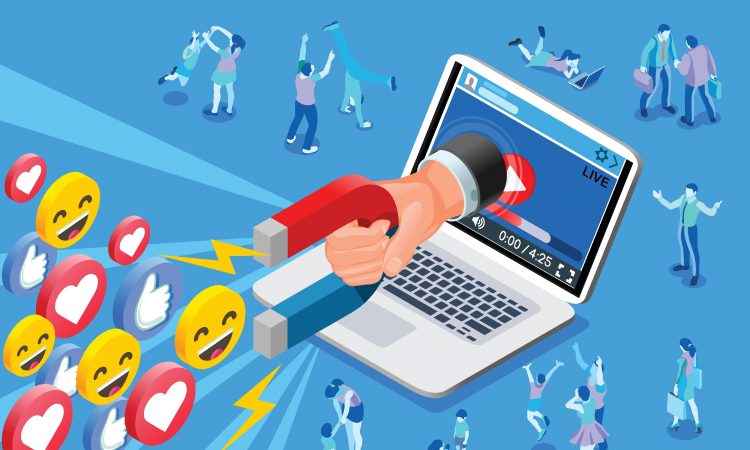In the ever-evolving landscape of the digital age, the concept of influence has undergone a profound transformation. What was once primarily the domain of celebrities and public figures has now become a democratized phenomenon, with everyday individuals wielding unprecedented power through the internet and social media. The future of digital influence promises to be even more dynamic, as emerging technologies and shifting social norms continue to reshape the way we understand, measure, and harness the power of influence. In this article, we will delve into the evolving landscape of digital influence, exploring the key drivers of change, the implications for individuals and businesses, and the potential ethical and societal challenges that lie ahead.

The Rise of Digital Influence
Digital influence, often referred to as online influence, encompasses the ability to shape opinions, behaviors, and decisions of others through digital platforms. This influence can be wielded by a diverse range of actors, from traditional celebrities to micro-influencers, bloggers, and even artificial intelligence (AI). The rise of digital influence can be attributed to several key factors:
- Social Media: The ubiquity of social media platforms like Facebook, Twitter, Instagram, and TikTok has given individuals the tools to amass followers and engage with them on a global scale. This has lowered the barriers to entry for those seeking to build a personal brand and exert influence.
- Content Creation: The democratization of content creation, thanks to smartphones and user-friendly software, allows individuals to produce and share content with ease. Blogs, vlogs, podcasts, and other forms of digital media have empowered individuals to express their ideas and opinions.
- Data and Analytics: Advanced data analytics and tracking tools provide insights into audience behavior, helping influencers and brands tailor their content and engagement strategies for maximum impact. This data-driven approach has made influence campaigns more precise and effective.
- E-commerce and Affiliate Marketing: The integration of e-commerce with social media platforms has created new opportunities for influencers to monetize their reach. They can now directly promote products and services and earn commissions through affiliate marketing.
- Authenticity and Relatability: Today’s audiences often value authenticity and relatability over traditional notions of celebrity. Micro-influencers who connect with their followers on a personal level can have a more significant impact on niche markets.
- AI and Automation: The use of artificial intelligence and automation tools has enabled the creation of chatbots, virtual influencers, and algorithm-driven content recommendations. These technologies can efficiently reach and engage audiences at scale.
The Shifting Landscape of Digital Influence
As digital influence continues to evolve, several trends and shifts are shaping the landscape:
- Short-Form Video Dominance: Platforms like TikTok and Reels on Instagram have popularized short-form video content. The brevity of these videos is ideal for capturing attention in an era of shrinking attention spans.
- Rise of Virtual Influencers: AI-generated virtual influencers, such as Lil Miquela, are gaining traction. These digital avatars can be controlled to perfection and serve as brand ambassadors.
- Niche Markets and Micro-Influencers: Instead of aiming for mass appeal, many influencers are targeting niche markets. Micro-influencers, with smaller but highly engaged followings, are becoming valuable to brands.
- Interactive Content: Interactive content, like polls, quizzes, and live streaming, allows for real-time engagement with audiences, making the experience more personal and immersive.
- Influencer Diversity: There is a growing recognition of the importance of diversity and representation in digital influence. Brands are increasingly collaborating with influencers from various backgrounds to reach a broader and more inclusive audience.
- Blockchain and NFTs: The integration of blockchain technology is enabling influencers to create unique digital assets, such as Non-Fungible Tokens (NFTs), that hold value and can be bought and sold.
- Data Privacy and Regulations: With increasing concerns about data privacy, governments and tech companies are introducing regulations that impact how influencers and platforms handle user data.
The Implications of Digital Influence
The evolution of digital influence carries significant implications for individuals, businesses, and society as a whole.
- Business Opportunities: Businesses are increasingly partnering with influencers to reach their target audiences. This trend is likely to continue, with influencer marketing becoming a central component of advertising and brand promotion.
- Changing Advertising Landscape: The traditional advertising industry is experiencing a shift. TV and print ads are losing ground to digital advertising, and influencer marketing is at the forefront of this transformation.
- New Career Paths: The rise of digital influence has created new career opportunities, with individuals pursuing careers as full-time influencers, content creators, and digital marketers.
- Economic Impact: The influencer economy is a significant economic force, with influencers earning substantial incomes and platforms generating revenue from advertising and partnerships.
- Social and Cultural Influence: Digital influencers are shaping cultural norms and trends. They can have a powerful impact on issues ranging from fashion and beauty to politics and social justice.
- Ethical and Legal Challenges: The line between authentic content and paid promotions is often blurred. Ethical guidelines and legal regulations are emerging to address issues like disclosure and transparency.
- Information Manipulation: With the ease of content creation and sharing, there is an increased risk of misinformation and manipulation. Fake news and deepfakes can be propagated by influencers, raising concerns about the spread of false information.
- Mental Health and Wellbeing: The constant pursuit of likes, comments, and engagement metrics can have detrimental effects on the mental health of influencers. The pressure to maintain a curated online image can lead to issues like anxiety and depression.
The Future of Digital Influence: What Lies Ahead?
Predicting the exact future of digital influence is challenging, but several trends and possibilities can be explored:
- AI-Enhanced Influencers: Virtual influencers driven by AI will continue to grow in popularity. These digital avatars can be customized and controlled to perfection, making them ideal brand ambassadors.
- Deeper Personalization: As AI and data analytics advance, personalization in content and advertising will become more sophisticated. Tailored content and product recommendations will enhance the user experience.
- Privacy and Regulation: Concerns about data privacy and online safety will lead to more stringent regulations. Influencers and platforms will have to adhere to stricter guidelines regarding user data and content moderation.
- Blockchain and NFT Integration: The use of blockchain technology and NFTs in influencer marketing will expand, allowing influencers to monetize their digital assets and providing new ways for brands to engage with audiences.
- Sustainability and Social Responsibility: Influencers and brands will increasingly focus on sustainability and social responsibility. Consumers are demanding authenticity and a commitment to environmental and social causes.
- Emerging Platforms: New social media platforms and technologies will continue to emerge. Influencers and brands will need to adapt and explore these platforms to stay relevant.
- AI-Generated Content: AI will play a more significant role in content creation, from writing articles to generating video scripts. This may lead to AI-driven influencers, content creators, and brand messaging.
- Merged Realities: Augmented and virtual reality will enable influencers to create immersive experiences for their audiences. From virtual fashion shows to AR try-on experiences, the possibilities are vast.
- Virtual Economies: Virtual goods, services, and currencies within online games and metaverse platforms may become a significant part of influencer marketing and monetization.
- Transparency and Accountability: Ethical considerations and legal regulations will become more pronounced. Influencers will need to maintain transparency in their content and financial relationships.
Conclusion
The future of digital influence is a dynamic and ever-evolving landscape, driven by the convergence of technology, culture, and business. As influencers continue to shape our opinions, behaviors, and purchasing decisions, the ethical and societal implications of this power become increasingly relevant. The path forward will be shaped by ongoing discussions around privacy, authenticity, and accountability, as well as the creative and innovative ways in which digital influence is harnessed. Regardless of the challenges and opportunities that lie ahead, one thing is clear: digital influence is here to stay, and its impact will only become more profound in the years to come. It’s up to individuals, businesses, and society as a whole to navigate this terrain responsibly and thoughtfully as we explore the exciting possibilities of the digital age.
Read More: HOW TO EARN MONEY ONLINE WITH GOOGLE IN INDIA
Read More:- A Comprehensive 7-Step Guide to Become a Freelancer in 2023





